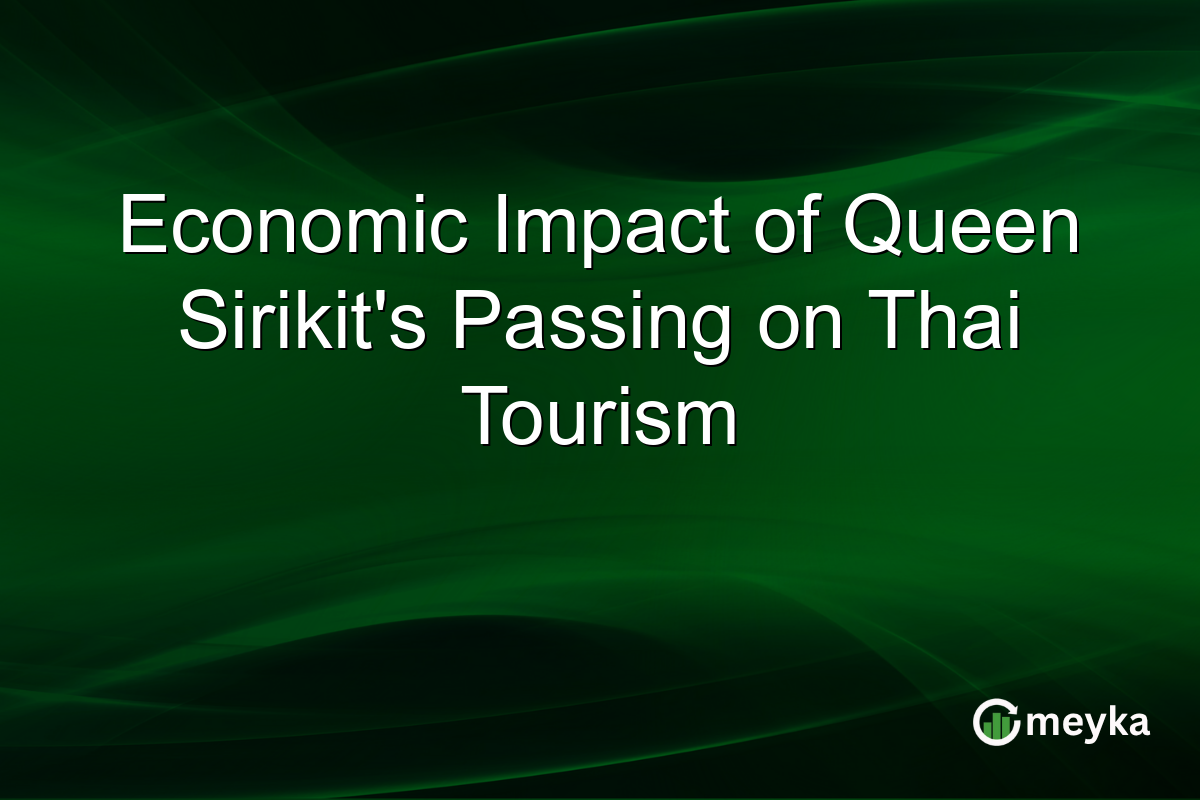Economic Impact of Queen Sirikit’s Passing on Thai Tourism
The passing of Queen Sirikit at age 93 marks a significant moment for Thailand, impacting both its cultural and economic landscapes. Her influence as a cultural ambassador for Thailand makes her loss impactful, particularly on tourism, a key sector for the nation’s economy. As the country enters a period of mourning, questions arise about how her absence will affect the tourism industry that often relies on the allure of the Thai monarchy’s charm.
Queen Sirikit’s Economic Role in Tourism
Queen Sirikit, renowned for her contributions to promoting Thai culture, played an intrinsic role in boosting the nation’s global presence. Her initiatives often highlighted traditional arts, crafts, and cuisine, drawing tourists eager to explore Thailand’s rich heritage. With her passing, these programs may see renewed interest, as tourists and locals yearn to connect with the legacy she left behind. However, the immediate economic impact could show a decline in tourist inflows as national mourning unfolds.
Sources such as The Guardian indicate that her work significantly supported rural economies by promoting local crafts in global markets. This influence is crucial in understanding potential shifts in tourism dynamics.
Thai Monarchy Impact on National Economics
The Thai monarchy holds considerable sway over the country’s economic sectors, with tourism being a primary beneficiary. Events like royal ceremonies often attract a surge of visitors, contributing significantly to economic growth. Nonetheless, the mourning period could momentarily dampen this effect, as celebrations and festivities are paused out of respect.
Queen Sirikit’s patronage of cultural events created a fusion of tradition and tourism, essential for both preserving culture and fostering economic development. This moment, therefore, suggests a turning point, both in honoring cultural heritage and in shaping future tourism strategies.
Global Influence and Heritage Tourism
As a figurehead of Thai culture, Queen Sirikit’s global influence continues to resonate, particularly through heritage tourism. Her efforts in showcasing Thai traditions have piqued international interest, setting a standard for cultural tourism strategies. Her passing might compel tourism boards to innovate by incorporating her legacy into marketing strategies, potentially driving a new wave of cultural curiosity.
The awareness around her dedication to culture may lead to increased visitor interest in heritage sites and events celebrating her life, ultimately benefiting the tourism sector despite the initial decline during the mourning period. This global interest could invigorate local economies passionate about maintaining cultural narratives.
Final Thoughts
The economic impact of Queen Sirikit’s passing on Thailand’s tourism sector is multifaceted. While the national mourning could lead to temporary declines in visitor numbers, her legacy holds the potential for a renewed focus on heritage tourism. As the country navigates this transitional period, the continued promotion of Thai culture as a key tourist attraction remains essential. For investors and stakeholders in the tourism industry, Queen Sirikit’s enduring influence suggests that strategic marketing and event planning can keep her legacy alive, fostering both cultural pride and economic growth.
FAQs
Queen Sirikit enhanced Thailand’s tourism by promoting cultural crafts and traditions globally. Her efforts attracted tourists interested in heritage tourism, significantly impacting local economies.
National mourning can lead to a temporary decline in tourist numbers as events are paused. However, it also prompts a renewed focus on heritage, drawing future interest.
Yes, her legacy of promoting Thai culture is likely to be integrated into future tourism strategies, emphasizing heritage attractions and events celebrating her contributions.
Disclaimer:
This is for information only, not financial advice. Always do your research.






